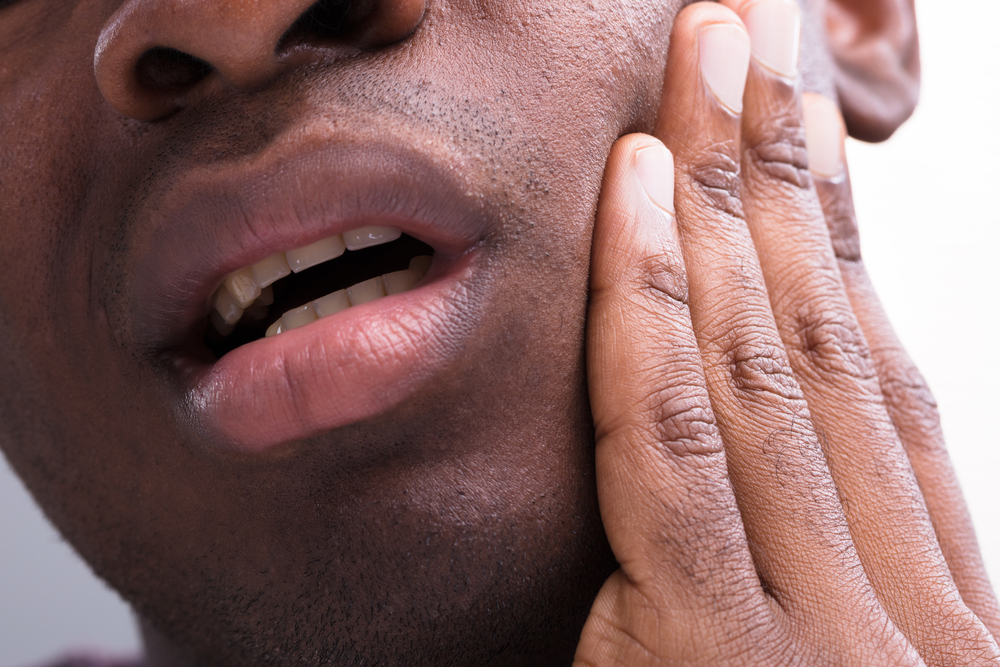
Bruxism – teeth grinding or clenching – can have a significant negative impact on your overall oral health. Many of our patients suffer from various symptoms of the condition. However, a number of individuals may not even realize they are grinding their teeth, as it often occurs subconsciously during sleep. Here, I will discuss the causes, symptoms, and treatments for this condition as well as how untreated bruxism can lead to severe health issues.
What Causes Bruxism?
Bruxism is likely due to a combination of genetic, physical, and psychological factors. Two of the most common causes of the condition include stress and dental misalignment. There are also several risk factors. For example, you may have a higher chance of developing bruxism if you:
• Take certain medications
• Experience negative emotions frequently, such as anger, tension, and stress
• Consume large amounts of caffeine, tobacco, or alcohol
• Use recreational drugs
• Have a family history of bruxism
• Suffer from sleep apnea or other sleep disorders
• Have Parkinson’s disease, dementia, GERD, or other certain medical conditions
Common Symptoms of Bruxism
The symptoms of bruxism can be varied. You may be suffering from the condition if you notice:
• Tenderness in the jaw, face, or neck
• Tooth pain
• Headaches
• Earaches
• Clicking or popping of the jaw joints
• Restricted jaw movement
How Bruxism Can Lead to Permanent Dental Damage
If left untreated, bruxism can lead to enamel erosion, fractured teeth, mobility, gum recession, flattening of the chewing surfaces, and more. This will not only require costly dental work, it can also cause issues with the TMJ. For example, any time your bite is altered, the jaw joints work overtime to compensate. As a result, the muscles around the joints become sore and inflamed. Treating bruxism in the early stages can help prevent damage and preserve your teeth and gums.
Treatments for Bruxism
There are several methods used to treat bruxism. The option recommended for you will depend on the severity of your condition. Some of the most common treatments I use in my practice include:
• Oral appliance therapy: A custom mouth guard can help cushion the teeth and protect them from damage. These appliances can be worn during the day or at night, depending on when bruxism occurs.
• Orthodontic treatment: If bruxism is occurring due to dental misalignment, orthodontic treatment can help address the issue. By moving your teeth into their appropriate positions, forces are balanced across your entire bite. This significantly reduces the risk for grinding or clenching.
• BOTOX® therapy: Oftentimes, bruxism is accompanied by TMJ pain. If this is a symptom for you, BOTOX injections may be helpful. This treatment can effectively weaken the muscles associated with bruxism and jaw pain.
If you are experiencing any of the symptoms associated with bruxism, schedule a consultation at my practice. We can work together to determine the root cause of your condition and choose a solution that will treat it effectively.
About the Author: Dr. Mickiewicz owns a private practice in Sacramento and lectures across the nation on TMD treatments. He is a diplomate of the American Academy of Pain Management and holds membership in many professional associations for dentistry, sleep medicine, and TMD. In addition, Dr. Mick, as his patients call him, founded Pacific Orofacial Pain Consultants, a team of experts in various disciplines, who tackle the issue of TMD pain and treatment, to help sufferers find relief from chronic pain. To talk with Dr. Mick, call his Sacramento dental office at 916-469-9178.


